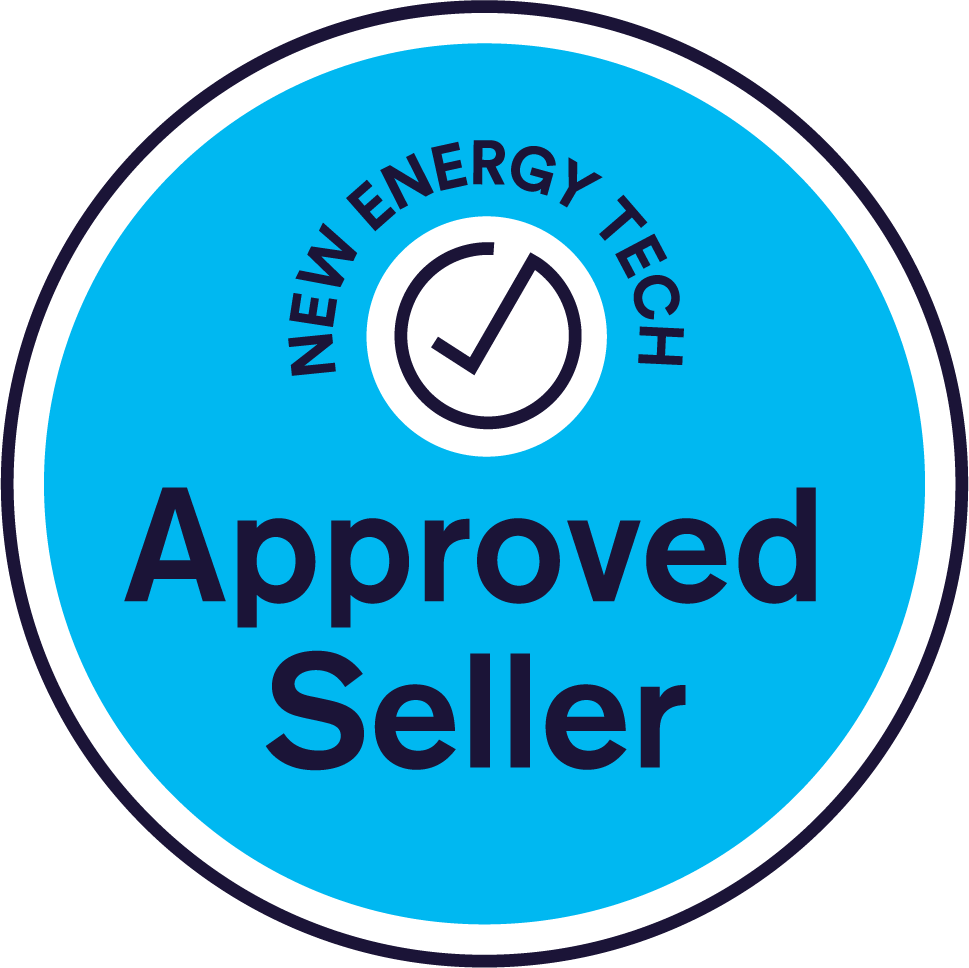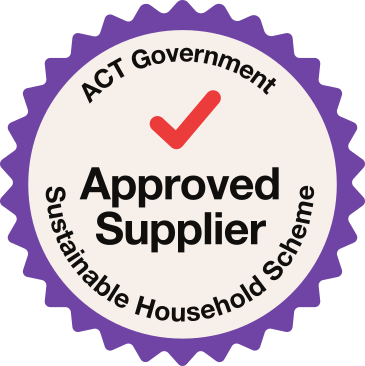Enphase and Fronius are leading manufacturers in the solar inverter market, each with unique features. Enphase specializes in microinverters, while Fronius is known for its string inverters.
Comparing Enphase and Fronius reveals a clash between innovation in microinverter technology and the robust legacy of string inverter excellence. Enphase Energy, a global energy technology company, prides itself on pioneering microinverter systems that offer module-level optimization, resulting in increased energy harvest and reliability for residential and commercial solar installations.
This technology stands out for its ease of installation, advanced monitoring capabilities, and improved safety due to the absence of high DC voltage.
On the other side, Fronius has built a strong reputation for its high-quality, efficient string inverters favored in numerous international markets.
They provide versatile solutions with a track record of durability and are particularly suited for larger solar energy systems. Both companies continually invest in research and development to stay at the forefront of solar technology, ensuring customers benefit from innovations that maximize energy production and system longevity.
Enphase vs Fronius in depth Comparison
As more homes embrace green energy, solar inverters play a crucial role. Solar inverters transform the sun's energy into power for our homes. Two leading brands stand out: Enphase Energy and Fronius International. Both brands offer unique benefits. Picking the right one means understanding what they offer. Dive in with this introduction to these top solar inverter brands.
Overview Of Enphase Energy
Enphase Energy specializes in microinverter technology. This means each solar panel has its inverter. Better performance and easy troubleshooting are key benefits. Here's a quick look at Enphase Energy:
Founded: 2006, in California, USA
Products: Microinverters, battery storage, energy management
Innovation: Pioneered microinverter systems
User Friendly: Easy monitoring through smart apps
Overview Of Fronius International
Fronius International brings experience and a strong reputation. They focus on string inverter solutions. String inverters connect all panels together. This brand is known for durability. Let's look at Fronius International briefly:
Technology And Performance Comparison
Choosing the right inverter is crucial for optimal solar performance. Let's compare Enphase and Fronius technologies and see which performs better.
Inverter Technologies: Microinverters Vs String Inverters
Enphase inverters use microinverter technology. Each panel has its own inverter. This design helps in maximizing energy harvest per panel and allows detailed monitoring. Fronius inverters are string inverters. Multiple panels connect to one inverter. This setup works well with uniform solar exposure across panels.
Efficiency And Energy Output
Efficiency is key for power yield. Enphase boasts a peak efficiency of around 97%. Fronius inverters showcase peak efficiency near 98%. Both brands offer high performance but Fronius leads slightly in lab-tested scenarios.
Reliability And Durability
Durability ensures long-term sustainability. Enphase's solid reliability comes with a 25-year warranty. Fronius offers a 5 to 10-year warranty, expandable up to 20 years. Both brands are trusted for their robust builds and enduring performance.
Compatibility With Solar Panels And Battery Storage
Both Enphase and Fronius work with most solar panels. Enphase microinverters suit panels in shaded or complicated roof scenarios. Fronius string inverters need uniform sunlight. As for battery storage, Enphase's integrated systems match well, while Fronius offers strong hybrid solutions compatible with various batteries.
Installation And Maintenance
Embarking on the journey of solar energy requires not just choosing panels but also picking the right inverter. Two leaders in the solar inverter market, Enphase and Fronius, each present unique features, especially when we delve into installation and maintenance aspects. This section dissects these crucial stages to help make informed decisions for a seamless solar experience.
Ease Of Installation
When installing an inverter system, convenience and simplicity matter. Enphase inverters offer plug-and-play ease, making the setup straightforward even for novice installers. The microinverter technology of Enphase is installed directly on the back of each panel, reducing the need for complex wiring and large central inverters. On the other side, Fronius inverters are central or string inverters requiring a bit more electrical knowledge and space for installation. Despite this, Fronius systems provide flexible mounting options and clear instructions to facilitate the process.
Ongoing Maintenance Requirements
Maintenance is a critical aspect of any technological investment. Enphase's microinverter setup leads to a lower risk of system-wide downtime, as each panel operates independently. Moreover, Enphase guarantees a robust build quality, translating to less frequent maintenance needs. In contrast, Fronius inverters, while built to last, may require periodic checks due to their centralized architecture. Any failure can affect the entire system’s performance, necessitating proactive maintenance.
Monitoring And Software Solutions
Keeping track of your system’s performance ensures you are getting the most out of your solar investment. Enphase provides MyEnlighten, a user-friendly monitoring platform that allows homeowners to monitor each panel's performance. This level of granularity is ideal for pinning down specific issues swiftly. Fronius answers with Solar.web, a comprehensive monitoring tool, offering detailed reports and real-time data to optimize the whole system's functionality.
Credit: www.greentechrenewables.com
Cost, Warranty, And Customer Support
Choosing between Enphase and Fronius for your solar solution involves comparing cost, warranty, and customer support. Making the right choice can save you money and stress over time. Both offer unique benefits, but it is essential to understand the upfront costs, long-term value, warranty conditions, and customer service experiences before making a decision.
Upfront Costs And Long-term Value
Enphase and Fronius systems have different price points and potential savings.
Enphase products tend to be higher in initial cost due to their microinverter technology.
Fronius inverters are more budget-friendly upfront, appealing to cost-conscious buyers.
Long-term returns on investment should also be considered, looking at efficiency and energy production.
Analyze total expenses and potential energy generation to gauge which brand gives the best value for your budget.
Warranty Terms And Conditions
Warranties are vital for protecting your investment in solar technology.
Enphase offers a lengthier standard warranty. Fronius provides shorter periods but with options to extend. Carefully review terms to know what's covered.
Customer Service Experience And Support
Your experience with customer support can affect overall satisfaction.
Enphase is known for robust customer service, with multiple support channels.
Fronius' reputation for support is good, but service experiences can vary by region.
Check online reviews and ask for testimonials to gauge real-world support scenarios.
Select a company known for reliable support and service after installation.
Global Market Presence And Reputation
Global Market Presence and Reputation are telling signs of a company's success and credibility in the competitive solar technology landscape. Enphase and Fronius stand tall as exemplary brands in this arena. Both have carved niches with distinct product offerings and regional influences. Let's explore how each brands’ market presence and reputation measure up within the global market.
Market Share And Growth
Enphase Energy and Fronius International have impressive footprints in the solar industry. Boasting substantial market share, both companies show remarkable growth trajectories.
Enphase enjoys a significant market share in the microinverter domain.
Fronius excels with its inverter solutions across various continents.
Expansion strategies have seen Enphase gain ground in Europe and Australia. Fronius counters with a robust presence in both America and Europe.
Awards And Certifications
Such firms thrive on recognition. Enphase and Fronius have a collection of awards and certifications.
Their commitment to quality and innovation is certified by international standards.
Customer Reviews And Industry Feedback
Customer opinions shape the stature of any brand.
Enphase often receives praise for its easy-to-use monitoring platform.
Fronius is acclaimed for its durable, efficient inverters.
Both brands garner positive industry feedback for their dedication to customer service and reliable product performance. However, online review platforms suggest Enphase leads with higher overall satisfaction in customer service.
Credit: mcelectrical.com.au
Environmental Impact And Sustainability
When we look into solar inverters like Enphase and Fronius, it's essential to consider how eco-friendly they are. Both companies are racing to lead in sustainability. This is not just about the clean energy they help produce. It's also about how they operate, the way they build their products, and what happens when those products reach the end of their life. Let's explore their green practices.
Corporate Sustainability Practices
Enphase takes pride in its mission to advance a sustainable future. The company focuses on reducing its carbon footprint through energy-efficient manufacturing. Their offices use solar power, and they aim for waste-free packaging.
Fronius commits to being carbon-neutral by 2024. They invest in renewable energy and employ energy-saving technologies in production. Their buildings are designed to save energy, and they encourage eco-friendly transportation among employees.
Environmental Certifications
Enphase has secured ISO 14001: an international standard for effective environmental management systems (EMS).
Fronius also boasts ISO 14001 certification. Plus, they have ISO 50001 for energy management systems, showing their dedication to energy efficiency.
End-of-life Product Management
Both Enphase and Fronius understand the importance of responsible end-of-life product management. They both offer recycling programs to minimize waste and prevent environmental harm.
Enphase's take-back program allows customers to return used products for proper recycling, ensuring materials get a second life.
Fronius provides clear instructions for recycling and works with specialized companies to dispose of electronic waste safely.
The Future Of Solar Inverter Technology
Imagine a world where your home runs on the sun's power. Not just any power, but smart, efficient energy. The future of solar inverter technology is shaping up to be an exciting journey, and leading the charge are two innovative companies, Enphase and Fronius. They set new benchmarks in converting sunlight to usable energy. This post will explore what's next for these solar giants.
Innovations On The Horizon
As we peer into the future, both Enphase and Fronius are not sitting back. These companies are pushing the boundaries of inverter tech. We're talking about advancements such as:
Higher efficiency rates, meaning more power from the same sunlight.
Smart grid integration, for a two-way relationship with energy grids.
Advanced energy storage solutions to keep your lights on without the sun.
Software management tools that help you control energy use like a pro.
Expansion Into Emerging Markets
The sun shines everywhere, and Enphase and Fronius get that. They are taking steps to bring solar power to new places. Added features for emerging markets will include:
Devices that work with varied power grids, even in remote areas.
Training programs to educate local installers and support jobs.
Flexible pricing models to make solar affordable for more people.
The Role Of Policy And Regulations
Policy shapes the solar world. Enphase and Fronius are playing by the rules and helping set some too. They work with governments to ensure:
Regulations that encourage solar adoption are in place.
Standards for safety and reliability match their high-tech equipment.
Incentives align with innovative technologies for both homes and businesses.
Credit: www.youtube.com
Related post:
Solis vs Growatt inverter
Frequently Asked Questions On Enphase Vs Fronius
What Are The Disadvantages Of Enphase?
Enphase inverters may have higher upfront costs compared to competitors. Some users report complex installation processes. Limited compatibility with non-Enphase products can restrict system expansion options. Customer support experiences vary, with some users finding issue resolution times lengthy.
What Is The Most Reliable Microinverter?
The Enphase IQ-Series microinverters rank as some of the most reliable options, known for their high performance and comprehensive warranties.
Why Enphase Is The Best?
Enphase excels with advanced inverter technology, robust microinverter systems, and integrated energy management solutions. Their high efficiency rates and reliable performance make them a top choice in solar tech. Enphase systems also offer user-friendly monitoring and a strong warranty, ensuring customer satisfaction.
Why Is Fronius So Expensive?
Fronius inverters command high prices due to their premium quality, cutting-edge technology, and reliable performance. Their products often feature advanced monitoring and are backed by strong warranties.
Conclusion
Choosing between Enphase and Fronius hinges on your unique energy needs. Both brands offer stellar performance, reliability, and distinct features. Your decision should align with your system's requirements and personal preferences. Seek advice and weigh the benefits to secure a wise investment in sustainable energy.
Let your journey to a greener future begin now.



